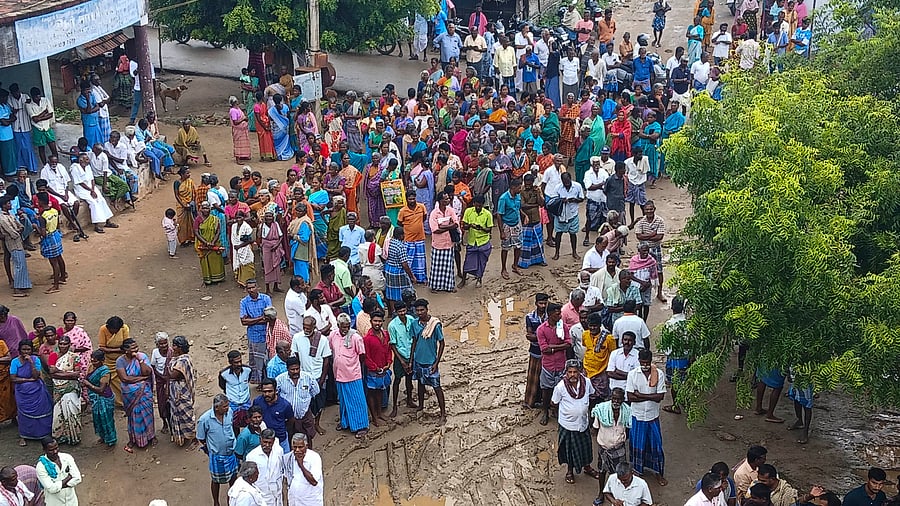
People from different regions protest against tungsten mining, in Madurai district
PTI
Chennai: Thousands of farmers and villagers from Melur taluk on Tuesday undertook a 25-km long procession to Madurai demanding the scrapping of the tungsten mining licence awarded to a Vedanta-owned company. They also demanded that the Tamil Nadu government declare 48 villages, which have been classified as a tungsten block, as a protected agricultural zone to prevent any kind of mining in the area in the future.
The farmers, who numbered over 10,000, began the march from Narasingampatti in Melur taluk on Tuesday morning in cars, motorcycles, tractors, buses, lorries, and on feet, which reached Tallakulam in Madurai in the afternoon. While some of them were stopped mid-way and detained by police, a majority of the protesters managed to reach the city.
They want the tungsten mining project to be nixed as the block is located close to Arittapatti, Tamil Nadu’s first biodiversity site, and many megalithic structures, and 2200-year-old rock-cut temples.
The massive protest comes two weeks after the Union Ministry of Mines asked the Geological Survey of India (GSI) to “reexamine” the tungsten block awarded to Hindustan Zinc Limited and explore the possibility of redefining its boundary by excluding the state’s first bio-diversity site from the mining block, following opposition to the project.
The farmers felt the Union Government’s “reluctance” to completely scrap the project showed that it was keen on putting the tungsten block on auction by merely redrawing its boundaries. The block was awarded to Hindustan Zinc Limited on November 7 drawing wide-spread condemnation from farmers and the state government, which moved a resolution against the project in the Assembly in December.
While making the re-examining announcement, the Ministry of Mines blamed the state government for not recommending against conduct of auction before the block was allotted, though it admitted that Tamil Nadu informed about the existence of biodiversity sites covering an area of 193.215 hectares.
“All the villages that form the tungsten block are farming villages with fertile land. We will never allow a mining project in our area. We want the entire project to be scrapped,” a protestor said.
Another farmer demanded that the Tamil Nadu Assembly, which is currently in session, adopt a resolution declaring 48 villages in Melur taluk as a protected agricultural zone. “This announcement will help us in a huge way. It is the state government which should save us,” the farmer added.
The mining block is located close to Arittapatti, Tamil Nadu’s first Biodiversity Heritage Site, which is one of the reasons for the opposition to the project. Arittapatti consists of a chain of seven barren granite hillocks and a distinctive landscape of rocky hills that acts as a watershed, supporting 72 lakes, 200 natural spring pools, and 3 check dams.
Hillocks in Arittapatti village have rich biological and historical significance with the presence of around 250 bird species, including 3 flagship Raptor species – Laggar Falcon (Falco jugger), Shaheen Falcon (Falco peregrines), and Bonelli's Eagle (Aquila fasciata). The village also features various megalithic structures, Tamil Brahmi inscriptions, Jain Beds, and 2200-year-old rock-cut temples.